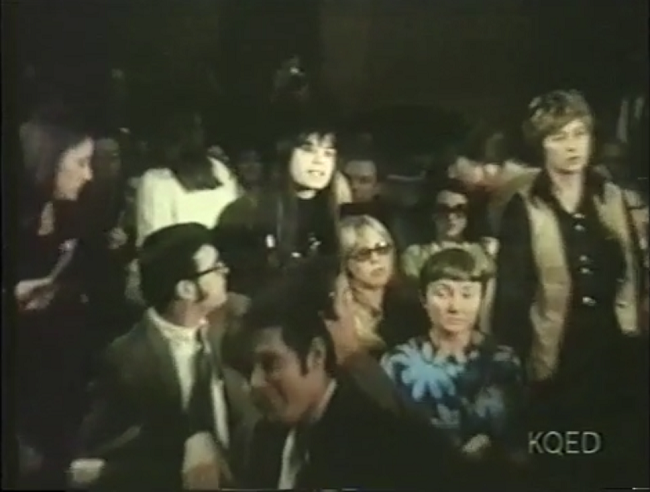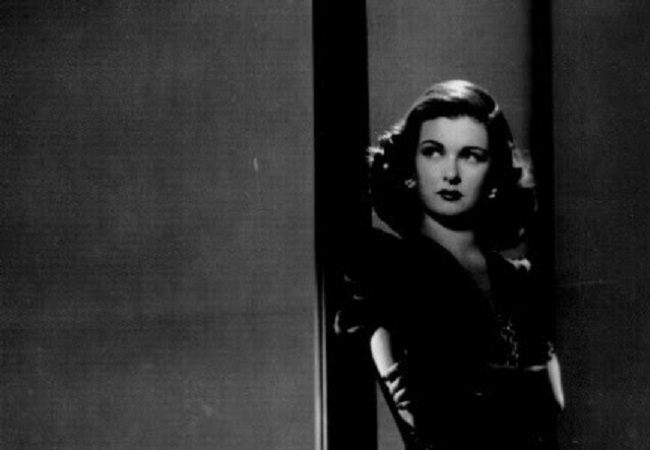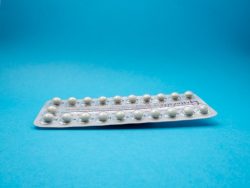Fifty years ago this month, a vibrant group of young women put on their best dresses and placed themselves strategically around the senate gallery. They were eager to disrupt and ready to make some noise but had no idea the impact they were about to make on the course of history. They were attending the opening statements of a controversial look at hormonal birth control that would later became known as the Nelson Pill Hearings.
In 1970, hormonal birth control had been on the market for almost a decade. Although 8.5 million women were already taking The Pill, serious questions about its safety were just coming to the surface. Senator Gaylord Nelson chaired an explosive Congressional committee that set out to answer two simple questions:
- Has the safety of hormonal contraceptives been established?
- Are women being given sufficient information about the verified risks?
Questioning Birth Control
The hearings remain relevant today because much of the testimony about potential consequences has proven prophetic, and many of the questions raised about side effects continue to be unresolved.
This dive into the subject of oral contraceptives lasted a few months and represented only a small sample of the overall hearings entitled Competitive Problems in the Drug Industry. By the time they concluded, this comprehensive investigation would become the longest running hearings in Congressional history. The committee examined a vast range of issues in the drug industry (most of which are ripe for revisiting today), including questionable pricing practices, deceptive advertising, safety and efficacy of over-the-counter products, generics versus name brands, and a lack of regulation on medical devices. Ultimately, the hearings would fill thirty-three volumes in the Congressional Library. However, nothing in the ten-plus years of hearings came close to matching the energy and excitement of those first few months in 1970.
It all began when feminist writer, Barbara Seaman released her book, The Doctors’ Case Against the Pill. She had expected the book to spark a national outrage but was disappointed by the lack of attention it received. Aware of the drug industry hearings, she saw the symbiotic possibilities and penned a six-page letter to Sen. Nelson outlining some of her gravest concerns.
She had more in common with the senator than she imagined. They both believed they had uncovered some seriously unscrupulous problems with the pharmaceutical industry, and that these critical discoveries had gone largely unnoticed by the public. Sen. Nelson knew he needed a hot-button topic if his hearings were going to generate appropriate publicity, and Ms. Seaman’s letter seemed to deliver exactly what he needed.
Sen. Nelson passed the letter along to his lead staffer, Ben Gordon, and asked him to look into making it part of their hearings. Mr. Gordon worked on Capitol Hill for ten years before joining Sen. Nelson’s staff, and the senator trusted him implicitly. While most Congressional Hearings are coordinated and managed by a large team, Mr. Gordon had a staff of one. He did all the extensive behind-the-scenes legwork on the drug hearings himself. He assembled the roster of experts to testify, wrote the opening statements, and throughout the proceedings, sat next to Chairman Nelson, frequently chiming in with questions and comments of his own. Consequently, it may have been every bit as important that the letter resonate with Mr. Gordon as it had with the senator. It did, and Mr. Gordon eagerly set up a meeting with Ms. Seaman.
Mr. Gordon passed away last July at the age of 105. I was fortunate enough to become friends with him over the last few years of his life and was amazed by his lucidity until the end. He told me that he had first thought he would call Ms. Seaman to testify but, after reading her book, decided to call on the expert physicians she had interviewed. He said he always avoided indirect testimony because it was too easily picked apart. With this decision, Mr. Gordon may have inadvertently set into motion the events that would propel the hearings to headline status above the fold in most of the nation’s major newspapers.
Boston Tea Party for Women’s Health
January 14, 1970, the first day of The Pill hearings, was a typically cold winter morning in Washington D.C. As Sen. Nelson and Mr. Gordon walked to Capitol Hill, they were confronted by protesters. Groups of women walked alongside them yelling their disapproval. Their breath rose visibly through the air, creating the impression they were literally venting steam, but this was only the beginning. A progressive group of young feminists known as D.C. Women’s Liberation, led by Alice Wolfson, had heard that an all-male committee of senators was going to be hearing testimony from all-male doctors about women’s reproductive health. Unbeknownst to the senators, a small group of these women sat waiting in the gallery.
Those in attendance heard the results of new British studies that left Pill proponents in a panic, but they weren’t the only ones growing uncomfortable. Testimony linked The Pill to alarming side effects like breast cancer, depression, heart attacks, and strokes. Fear and uncertainty spread across the women in the senate chambers and would soon blanket the country. Ms. Wolfson and her companions had heard enough. The first of many interruptions came during the testimony of Dr. Philip Corfman from the National Institutes of Health (NIH). The nightly news eagerly covered their outrage as the women jumped up and shouted questions like ‘Why isn’t there a pill for men?’ and ‘Why are no women testifying?’ With these outbursts, Ms. Wolfson soon became the face of the hearings.
Mr. Gordon later recalled that most of the early protesters were upset because they felt the senators might have a hidden agenda for going after birth control. However, as the hearings progressed and leading physicians shared their concerns about The Pill’s safety, the outcry from protesters shifted. Suddenly, they began to question why they were being used as guinea pigs by the drug companies in some sort of mass population experiment.
Reflecting upon the events, Ms. Seaman wrote that the Nelson Pill Hearings brought the ‘uptown’ and ‘downtown’ feminists together on the issue of women’s health. Ms. Wolfson and she met for the first time at the hearings and began a lifelong friendship. They went on to co-found the National Women’s Health Network along with three other women. Surprisingly, Dr. Corfman and his wife, Eunice, also became lifelong allies to their cause. Ultimately, the actions and alliances born out of this brief exploration into birth control safety would lead to the hearings later being dubbed “The Boston Tea Party of the Women’s Health Movement.”
Birth Control Hearings Still Relevant
The committee answered a lot of the questions surrounding hormonal contraceptives. Probably the most notable result of the hearings was that The Pill became the first drug ever required to have an information pamphlet in each package, not for doctors, but for the patient. Unfortunately, those pamphlets are clunky, verbose, incomprehensible, and astoundingly incomplete. Their glaring omissions raise new questions about informed consent, as do the deaths of many young women from birth control related blood clots.
Proof that the hearings aren’t merely ancient history to be forgotten came in 2011, when the FDA commissioned a study and found that new, fourth generation formulations, which include bestsellers Yaz and Yasmin, doubled the risk of blood clots over the already elevated risk found with other hormonal contraceptives. They assembled an advisory panel of 26 experts to discuss possible action. After much debate, 15 of the experts voted that the benefits still outweighed the risks. However, 21 of the 26 voted that these formulations should contain stronger warnings for patients.
As of January 2016, the drug companies had paid out over $2 billion to settle more than 10,000 blood clot lawsuits brought against these newest formulations, and the number of injuries, deaths, and lawsuits continues to rise.
On this 50th anniversary of the Nelson Pill Hearings, perhaps the greatest lesson we can take away is that the battle has just begun. Our country’s independence wasn’t won in 1773 at The Boston Tea Party. Rather, it was the start of a movement. It is incumbent upon all of us who care about women’s health to take up the torch of those protesters from the hearings fifty years ago. We need to demand answers. And, it all begins with two simple questions:
- Has the safety of hormonal contraceptives been established?
- Are women being given sufficient information about the verified risks?
Thank you
Alice Wolfson is now a retired attorney living in San Francisco. That’s her featured in the photo above. You can see actual footage from the protests here. I would like to thank her for taking the time to visit with me and for offering her guidance and perspective on this article. Alice, your energy is infectious. May it continue to inspire those of us devoted to women’s health.
For more information about the history of hormonal birth control:

The FDA approved The Pill despite it not being proven safe. Today, it has been linked to everything from blood clots and cancer to lupus and Crohn’s disease — and still has not been proven safe.
This book explores the medical and historical disconnects that brought us to this point.
Last updated on October 21, 2023 at 9:38 pm – Image source: Amazon Affiliate Program. All statements without guarantee.
We Need Your Help
More people than ever are reading Hormones Matter, a testament to the need for independent voices in health and medicine. We are not funded and accept limited advertising. Unlike many health sites, we don’t force you to purchase a subscription. We believe health information should be open to all. If you read Hormones Matter, like it, please help support it. Contribute now.















Birth control issues will remain relevant for as long as women continue to get pregnant and have children. However, through the years, the dynamics will continue to change.
I do think that women still do not have enough information about the risks of birth control pills.
Those two questions remain relevant today. Are they safe? Do women know all they are getting into?
I thought this article will be about the side effects of BCs as usual but nice to see someone talk about it’s journey for a change. Insightful work.